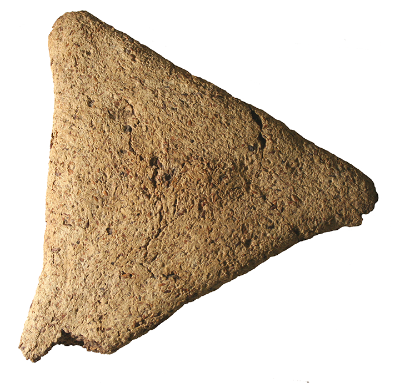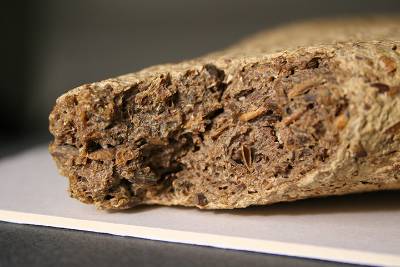Triangular Loaf of Bread
Date: First Intermediate Period, Dynasty XI, reign of Mentuhotep II (c. 2008-1957 B.C.E.)
Material: Bread
Provenance: Deir el Bahri, Mentuhotep II's mortuary temple
This loaf of bread is approximately 4,000 years old. It was placed with other objects
either within or under the foundation for Mentuhotep II's mortuary temple at Deir
el Bahari in Western Thebes. The objects placed in foundation deposits for ancient
Egyptian temples were intended to symbolically stabilize and protect the four corners
and the boundary walls of the temple. This was because the temple itself was believed
to be a microcosm of the universe.
King Mentuhotep II succeeded in reunifying Egypt at the end of the First Intermediate
Period, a period of decentralized power that separates the Old and Middle Kingdoms.
His reign of about fifty years saw the resurgence of a sophisticated art style.
During the bread-making process, the grinding of flour and the mixing of dough, the
ever-present sand and even small stones, became part of any bread that was made, whether
for offerings or domestic use. These gritty elements wore down the enamel of the teeth
which led to abscesses. Cavities, caused today by refined sugar and soft foods, were
not the culprits in tooth loss in ancient Egypt.
Inv. no.: 1981.1.14


